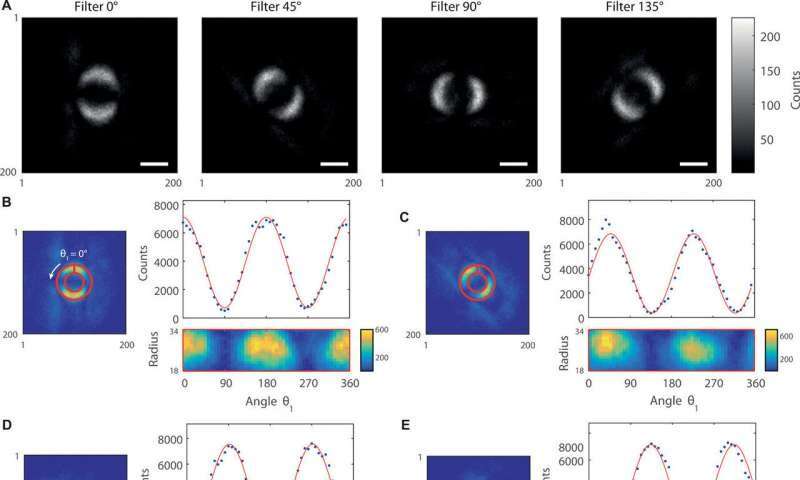Best of Last Week: Image of quantum-entanglement, breaching a carbon threshold and cutting calories in slim adults

It was another good week for physics as a team at the University of Glasgow unveiled the first-ever image of quantum entanglement—they captured an image of Bell entanglement using a special super-sensitive camera. A team at Durham University used a supercomputer to show that "Chameleon Theory" could change how we think about gravity—its simulations of galaxies showed that Einstein's theory of General Relativity may not be the only way to explain how gravity works. And a team with members from the U.S. and Japan announced a finding that they claimed could revolutionize information transmission—their observations of characterized and controlled dark trions in a semiconductor suggest that they could be used to increase capacity.
In news about the planet, a trio of researchers found that instability in Antarctic ice could make sea levels rise rapidly—Alexander Robel, Hélène Seroussi, and Gerard Roe found that instability hidden within Antarctic ice is likely to accelerate flow into the ocean, pushing sea levels to rise faster than has been predicted. And Daniel Rothman, a professor at MIT, found that breaching a "carbon threshold" could lead to mass extinction because of a runaway cascade of chemical feedbacks—leading to a highly acidified ocean that amplifies the original trigger.
In other news, an international team of researchers has found the "oldest remains" outside of Africa, resetting the human migration clock—two skulls unearthed in Greece in the 1970s were found to be approximately 210,000 years old. Security firm Check Point found malicious apps that have infected 25 million Android devices with "Agent Smith' malware. And a team at the University of Western Ontario may have found why marijuana affects people differently—they attribute it to differences in genetic sensitivity in parts of the brain. And a team with members from several institutions in China has developed an antigravity water transport system inspired by trees—based on capillary forces, it pulls dirty water up through an aerogel, where it is converted to steam.
And finally, if you are someone with a slim body and assume that you need not fear heart disease, you might want to take a look at the results of a study by a team at Duke University Medical Center —they found that even in svelte adults, cutting about 300 calories daily protects the heart.
© 2019 Science X Network